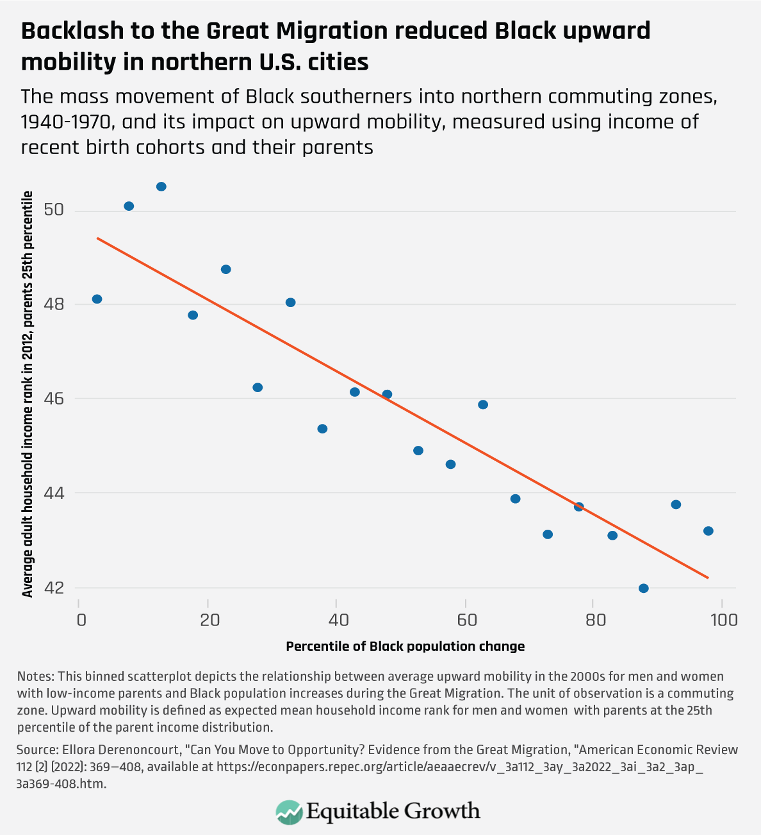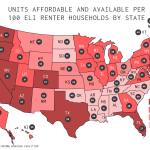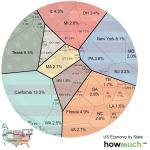Economic mobility for Black Americans has become a critical focus in the ongoing discourse around economic opportunity and the associated income gaps in America. Recent studies, particularly the Opportunity Insights study, shed light on the evolving landscape where Black millennials are experiencing improved earnings compared to previous generations. Despite historical disparities rooted in the class divide and race, there are evident shifts suggesting that some Black Americans born into low-income families now have better prospects for upward mobility. However, while these advancements are significant, the growing income gap between low- and high-income white families highlights a complex and multifaceted issue that continues to permeate American society. Understanding these dynamics is essential for framing policies that aim to enhance economic opportunities and reduce systemic inequities.
The quest for upward economic progression among African Americans reflects broader themes of equality and socioeconomic equity that have long impacted society. As studies reveal trends of enhancing financial circumstances for younger Black individuals, particularly in urban settings, the conversation around wealth distribution becomes increasingly relevant. This phenomenon indicates that other groups, notably Black millennials, are slowly closing the historical earnings divide compared to their white peers, showcasing a potential shift in the narrative of economic resilience. Yet, amidst these optimistic indicators, the persistent wealth gap and the widening chasm between different income classes warrant further exploration. The complexities of this evolving economic landscape underline the importance of ongoing research and policies aimed at leveling the playing field for all Americans.
Understanding Economic Mobility for Black Americans
Economic mobility is a crucial factor in understanding the socioeconomic progress of any demographic group, and recent studies highlight significant improvements for Black Americans born into low-income families. The research conducted by Opportunity Insights indicates that children of Black Americans born in poverty are experiencing better economic prospects today compared to their predecessors. This change signals a narrowing of the income gap and provides a hopeful narrative in the ongoing dialogue around racial equity in the United States.
However, despite these optimistic findings, the overall economic landscape presents a complex picture. While Black millennials have improved their average earnings to an inflation-adjusted $21,030 by age 27, the discrepancies between them and higher-income white individuals continue to widen. This highlights a crucial narrative: that while strides are being made, the systemic barriers that have historically affected Black Americans still linger, creating a new economic divide that is increasingly defined by class rather than race.
Frequently Asked Questions
What does economic mobility mean for Black Americans in today’s economy?
Economic mobility for Black Americans refers to the ability of individuals and families to improve their economic standing over time. Recent studies, including those by Opportunity Insights, indicate that economic prospects have improved for Black Americans born into low-income families, highlighting significant shifts in the economic landscape that offer greater opportunities for advancement.
How has the economic mobility of Black millennials compared to previous generations?
The economic mobility of Black millennials has shown promising signs compared to Black Gen Xers. For instance, Black millennials at age 27 had an average income of $21,030, which marks an increase from their predecessors’ average of $19,420. This reveals a narrowing income gap between Black and white Americans, though wider class divides still persist.
What are some factors affecting economic opportunity for Black Americans?
Economic opportunity for Black Americans is influenced by various factors, including community resources, parental employment rates, and historical socio-economic challenges. Opportunity Insights has found that children growing up in neighborhoods with high parental employment experience better long-term economic outcomes, suggesting that a community’s economic health plays a crucial role in individual mobility.
Is there still a significant income gap in America, particularly affecting Black Americans?
Yes, while the income gap between Black and white Americans has decreased, significant disparities remain. The earnings gap for Black millennials compared to low-income white individuals decreased to $9,521 from $12,994 for Gen Xers, demonstrating gradual progress in economic mobility but also highlighting persistent challenges like the class divide tied to race.
What role do childhood communities play in the economic mobility of Black Americans?
Childhood communities are instrumental in shaping the economic mobility of Black Americans. Research indicates that spending formative years in a prosperous environment, characterized by high employment rates among adults, contributes significantly to better economic outcomes in adulthood. This emphasizes the importance of community support and resources in enabling upward mobility.
What improvements have been identified in the earnings of low-income Black Americans over the past few decades?
Improvements have been noted in the earnings of low-income Black Americans, particularly for those born in 1992, who earned an average of $21,030 at age 27, compared to $19,420 for those born in 1978. This reflects significant advancements in economic prospects for the younger cohort, indicating a shift towards better financial stability.
How do class divides impact economic mobility for Black Americans today?
Class divides have a profound impact on economic mobility for Black Americans. Despite improvements in race-based disparities, the class gap has widened, particularly among white Americans. The increasing economic divide suggests that while race gaps are shrinking, socio-economic status continues to pose challenges for many Black families, affecting access to opportunities and resources.
What does the Opportunity Insights study reveal about the future of economic mobility for Black Americans?
The Opportunity Insights study indicates a positive trend in the economic mobility of Black Americans, with data suggesting that younger generations have better chances of moving out of poverty compared to their predecessors. This suggests that while challenges remain, there is potential for continued improvement in economic opportunities for future Black Americans.
What findings from the Opportunity Insights study could inform policy changes to enhance economic mobility for Black Americans?
The findings highlight the significance of fostering strong community employment and improving access to quality resources. Policies aimed at increasing parental employment, supporting local economies, and investing in educational opportunities can play a crucial role in enhancing economic mobility for Black Americans.
| Key Findings | Details | |
|---|---|---|
| Improved Economic Prospects for Black Americans | Research indicates that Black Americans born into poverty are experiencing better economic mobility than their predecessors. | |
| Narrowing Racial Income Gap | The earnings gap between low-income Black and white Americans has decreased, while the income gap among whites has increased. | |
| Growing Class Gap | Earnings for low-income white Americans have fallen, showing a dramatic increase in income disparity between the wealthy and the poor among whites. | |
| Regional Variations | Black Americans have made significant economic gains, especially in the Southeast and Midwest regions of the U.S. | |
| Impact of Childhood Communities | The quality of neighborhoods and community resources available during childhood significantly impacts long-term economic outcomes. | |
| Long-term Study | The study utilized 40 years of tax and Census data to explore these trends. | |
| Parental Employment Correlation | Higher rates of employment among parents in neighborhoods correlate with better economic outcomes for children of all races. | |
| Lower Poverty Rates | Increased opportunities have led to a decrease in the likelihood of Black Americans remaining in poverty. | |
Summary
Economic mobility for Black Americans has improved significantly, reflecting changes in societal structure and community resources. The findings from this study highlight not only the shrinking racial income gap but also the increasing class disparities. Access to better opportunities is crucial, and improving the economic prospects of Black Americans continues to be an essential priority for ensuring equitable growth in society.







